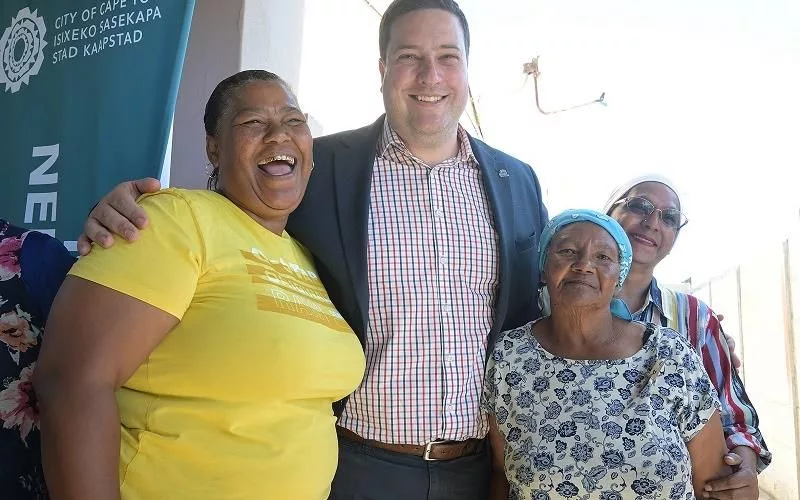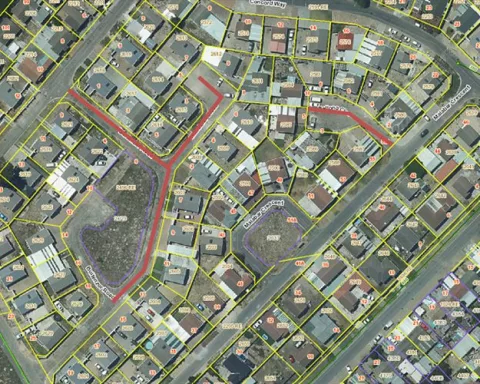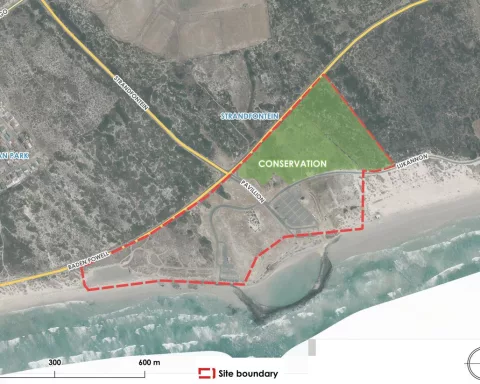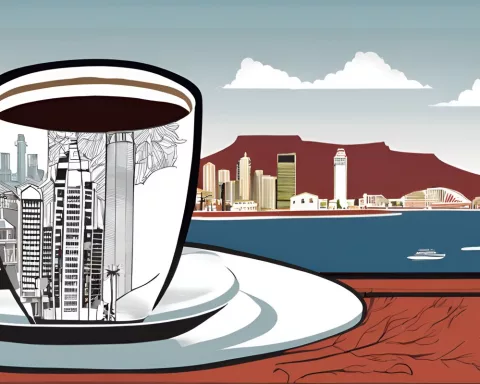Cape Town has launched a revolutionary ‘Zero Expense Transfer’ program to help tenants become property owners without any financial burden. The initiative aims to promote inclusivity within communities through property ownership and has been earmarked for an estimated R40 million over a three-year period. The initiative also covers attorney transfer fees and insurance costs for rental units, making the journey to homeownership easier for beneficiaries.
What is the ‘Zero Expense Transfer’ property ownership scheme in Cape Town?
The ‘Zero Expense Transfer’ initiative in Cape Town turns tenants into property owners without any financial burden. This unique programme aims to promote inclusivity within communities through property ownership and has been earmarked for an estimated R40 million over a three-year period. The initiative also covers attorney transfer fees and insurance costs for rental units, ensuring beneficiaries receive assistance throughout their journey to homeownership.
In the core of Cape Town, South Africa, an innovative scheme is revolutionizing the concept of property ownership. This groundbreaking ‘Zero Expense Transfer’ initiative is cultivating a sense of community and unity by turning tenants into property owners, thereby altering the urban framework.
Revolutionizing Urban Living
Cape Town’s Mayor, Geordin Hill-Lewis, accompanied by his team, including Carl Pophaim, a member of the City Human Settlements Mayoral Committee, recently interacted with the inhabitants of Lavender Hill. These individuals are starting a new journey in their lives, transitioning from tenants to owners of their dwellings, courtesy of the ‘Zero Expense Transfer’ initiative.
This avant-garde initiative, which was launched just a year ago, is unique in South Africa. It not only aims to provide beneficiaries the opportunity to own homes without any financial burden, but it also aims to bring respect and promote inclusivity within communities through property ownership.
Promoting Social Equity
This programme represents a monumental stride towards fostering social equality in a city that houses nearly 22,000 rented units or serviced locations. To boost this transformative project, an estimated R40 million has been earmarked for these ‘zero-expense transfers’ over a three-year period.
In a display of the initiative’s holistic approach, funds are also allocated to cover attorney transfer fees and insurance costs for the rental units. This financial aid continues from the point of sale to the property registration, thereby ensuring beneficiaries receive assistance throughout their journey to homeownership.
Mayor Hill-Lewis emphasizes that the city will remain dedicated to this revolutionary programme. “We aim to enhance this scheme in the upcoming year and further promote the empowerment associated with property ownership for future generations,” he expressed. This commitment is evidenced by the ‘Zero Expense Transfer’ initiative being recognized as a crucial aspect of the city’s vision of fostering a city of hope for everyone in Cape Town.
Empowering Residents
This initiative goes beyond simple property ownership; it serves as a potent tool for empowerment and rectification. Many beneficiaries see this as a life-altering opportunity, offering them a chance to own property in a place where they were once systematically denied this right due to oppressive apartheid laws.
Councillor Pophaim acknowledged the broader reparative influence of the project, praising the transformative work of the teams involved. “The ability to own a property in a place where you were previously denied ownership rights due to apartheid laws, is one of the most powerful tools for empowerment and rectification,” he said, expressing his appreciation to the diligent teams that made this initiative possible.
As Cape Town valiantly marches into a new year, the ‘Zero Expense Transfer’ programme is a shining example of forward-thinking urban development. It represents a commitment to creating a city that isn’t merely a place to live, but a home. A city where hope isn’t just a sentiment, but a palpable reality.
1. What is the ‘Zero Expense Transfer’ property ownership scheme in Cape Town?
The ‘Zero Expense Transfer’ initiative in Cape Town turns tenants into property owners without any financial burden. This unique programme aims to promote inclusivity within communities through property ownership and has been earmarked for an estimated R40 million over a three-year period.
2. How does the ‘Zero Expense Transfer’ initiative work?
The initiative covers attorney transfer fees and insurance costs for rental units, ensuring beneficiaries receive assistance throughout their journey to homeownership. It provides financial aid from the point of sale to the property registration.
3. What is the goal of the ‘Zero Expense Transfer’ initiative?
The primary goal of the ‘Zero Expense Transfer’ initiative is to promote inclusivity within communities through property ownership and to provide beneficiaries the opportunity to own homes without any financial burden.
4. How much money has been allocated to the ‘Zero Expense Transfer’ initiative?
An estimated R40 million has been earmarked for these ‘zero-expense transfers’ over a three-year period.
5. What is the significance of the ‘Zero Expense Transfer’ initiative?
The ‘Zero Expense Transfer’ initiative is a potent tool for empowerment and rectification. It serves as a shining example of forward-thinking urban development and represents a commitment to creating a city that isn’t merely a place to live, but a home.
6. Will the ‘Zero Expense Transfer’ initiative continue in the future?
Mayor Hill-Lewis emphasizes that the city will remain dedicated to this revolutionary programme. The city aims to enhance this scheme in the upcoming year and further promote the empowerment associated with property ownership for future generations.












